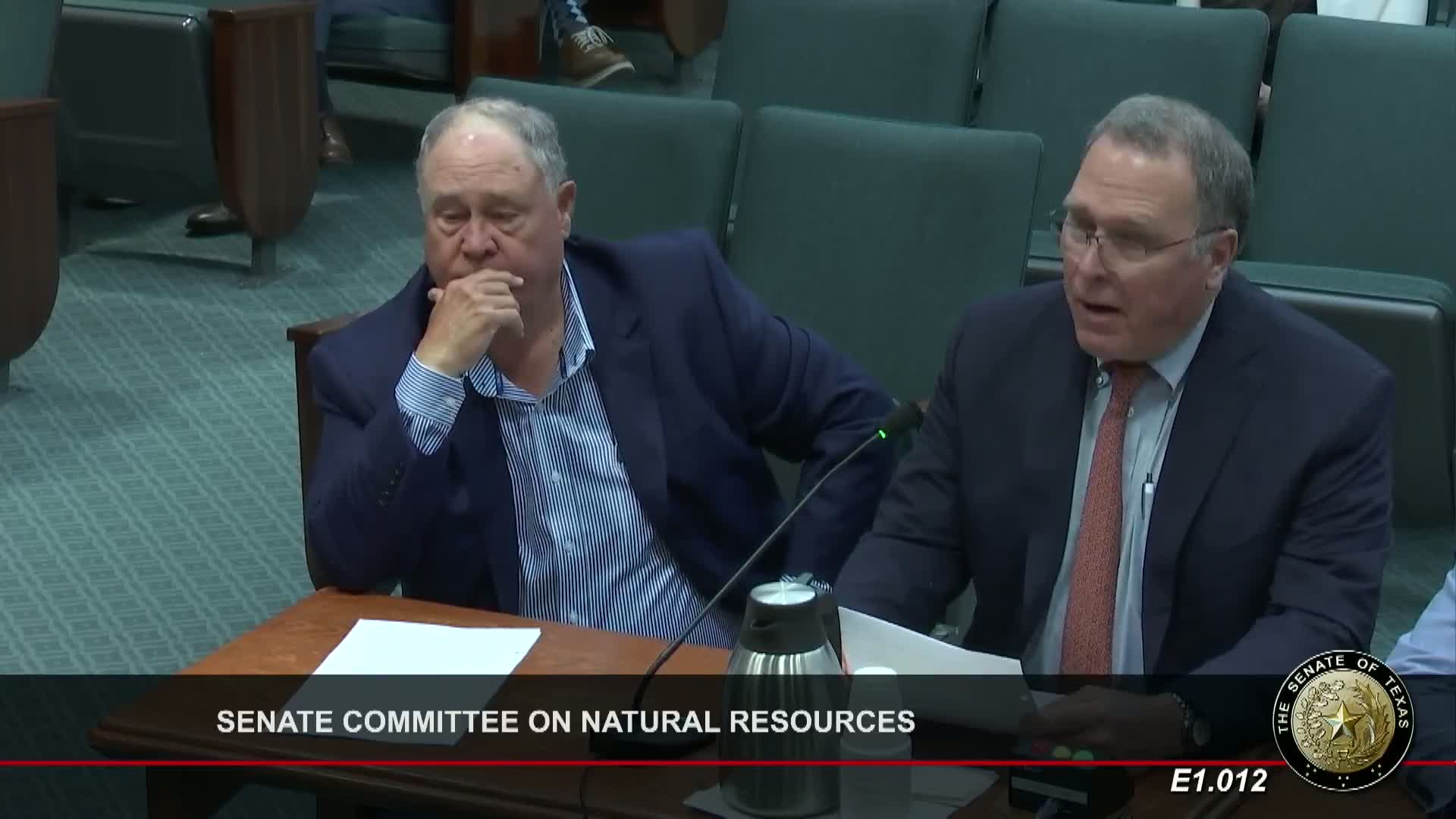House Bill 2663 Addresses Electrical Safety Risks After Wildfires in Texas Panhandle
May 14, 2025 | Committee on Natural Resources & Economic Development, Senate, Legislative, Texas
This article was created by AI summarizing key points discussed. AI makes mistakes, so for full details and context, please refer to the video of the full meeting. Please report any errors so we can fix them. Report an error »

In a pivotal meeting of the Senate Committee on Natural Resources, held on May 14, 2025, passionate testimonies highlighted the urgent need for legislative action to address the devastating impact of wildfires in Texas. The focus centered on House Bill 2663, aimed at improving electrical safety standards in the oil and gas industry, particularly concerning outdated equipment that has contributed to catastrophic fires.
One speaker, a local rancher, shared a heart-wrenching account of the destruction caused by wildfires in the Texas Panhandle. Since February 2006, approximately 4 million acres have been scorched, with 3 million of those fires attributed to faulty electrical systems linked to utility companies and oil and gas operators. The rancher recounted personal losses, including cattle, homes, and vital natural resources, emphasizing the human toll of these disasters.
The discussion revealed a troubling pattern: many of the wells in the region, some dating back to the 1920s, still rely on outdated electrical infrastructure. The rancher criticized the Railroad Commission for failing to enforce necessary safety measures, despite having brought violations to the attention of its commissioners. He expressed hope that House Bill 2663 would initiate much-needed reforms to prevent further tragedies.
Cyrus Reed, representing the Sierra Club, echoed these sentiments, supporting the bill as a crucial step toward addressing the dual issues of aging electrical equipment and the risks posed by inactive wells. He noted that the bill includes provisions for either removing outdated equipment or deactivating it, a measure aimed at reducing fire hazards.
As the committee deliberated, the urgency of the situation was palpable. The rancher's personal experiences underscored the broader implications of the bill, as he called for improved electrical maintenance to protect both the environment and the livelihoods of those in the oil and gas industry.
With no further speakers on the matter, the committee left House Bill 2663 pending, signaling a critical moment in Texas's ongoing battle against wildfires and the need for legislative action to safeguard its communities and natural resources. The discussions from this meeting will likely resonate as lawmakers consider the future of fire safety and environmental protection in the state.
One speaker, a local rancher, shared a heart-wrenching account of the destruction caused by wildfires in the Texas Panhandle. Since February 2006, approximately 4 million acres have been scorched, with 3 million of those fires attributed to faulty electrical systems linked to utility companies and oil and gas operators. The rancher recounted personal losses, including cattle, homes, and vital natural resources, emphasizing the human toll of these disasters.
The discussion revealed a troubling pattern: many of the wells in the region, some dating back to the 1920s, still rely on outdated electrical infrastructure. The rancher criticized the Railroad Commission for failing to enforce necessary safety measures, despite having brought violations to the attention of its commissioners. He expressed hope that House Bill 2663 would initiate much-needed reforms to prevent further tragedies.
Cyrus Reed, representing the Sierra Club, echoed these sentiments, supporting the bill as a crucial step toward addressing the dual issues of aging electrical equipment and the risks posed by inactive wells. He noted that the bill includes provisions for either removing outdated equipment or deactivating it, a measure aimed at reducing fire hazards.
As the committee deliberated, the urgency of the situation was palpable. The rancher's personal experiences underscored the broader implications of the bill, as he called for improved electrical maintenance to protect both the environment and the livelihoods of those in the oil and gas industry.
With no further speakers on the matter, the committee left House Bill 2663 pending, signaling a critical moment in Texas's ongoing battle against wildfires and the need for legislative action to safeguard its communities and natural resources. The discussions from this meeting will likely resonate as lawmakers consider the future of fire safety and environmental protection in the state.
View full meeting
This article is based on a recent meeting—watch the full video and explore the complete transcript for deeper insights into the discussion.
View full meeting
